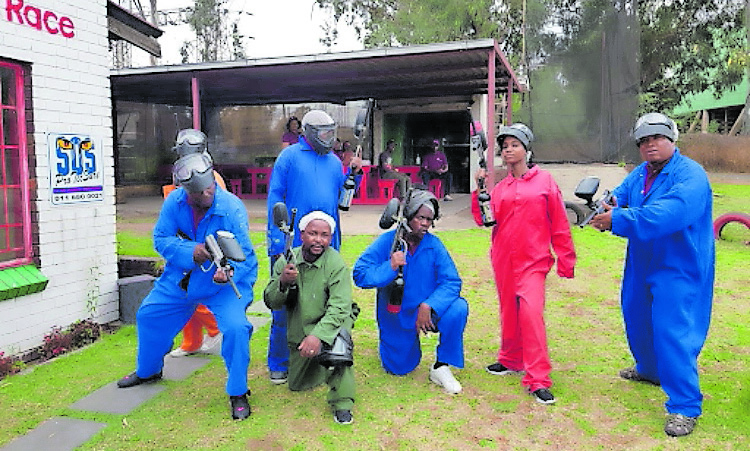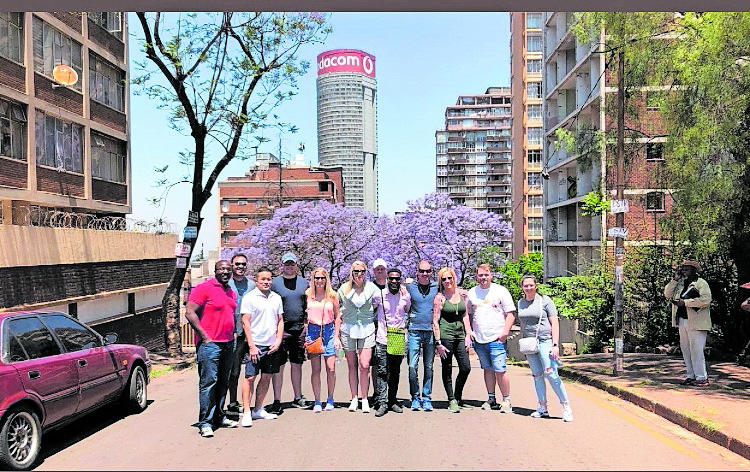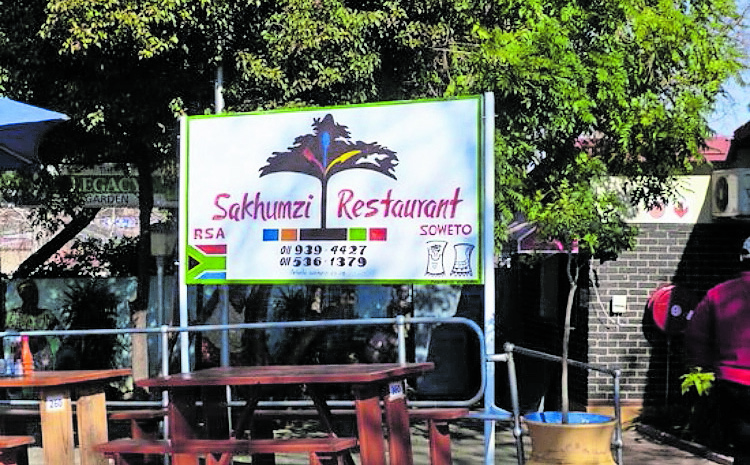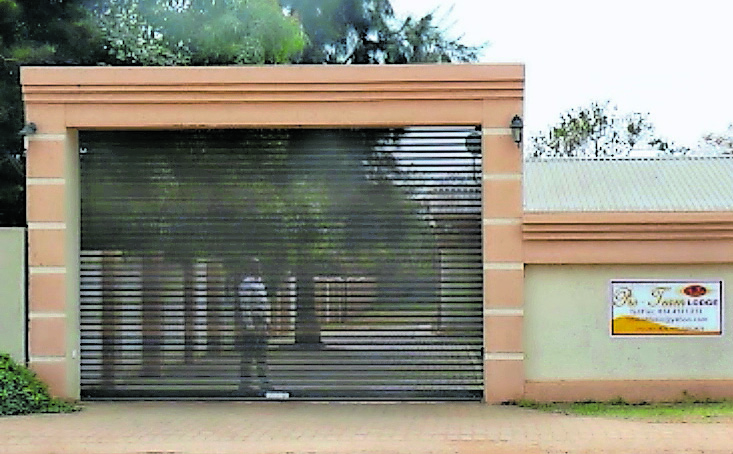Many foreign tourists are looking for something authentic, but out of ordinary, which is what Mthombo's provides
Clad in sunglasses, hats and sturdy walking shoes, tourists carefully navigate around shacks and portable toilets on the steep narrow roads of Imizamo Yethu, the informal settlement in Hout Bay, Cape Town, on of the many township tours the Mother City offers. Promises of an authentic experience and a chance to see how the locals live is a selling point for tourism operators in some of the country’s most famous townships.
Tourism is a crucial growth sector in South Africa, a source of foreign currency and job creation. It contributed 2.8% to South Africa’s Gross Domestic Product (GDP) in 2017, or R130-billion — more than the agriculture, forestry and fisheries industries.
Regarding job creation, 64 000 new positions were created by the travel industry between 2014 and 2017, outperforming larger sectors such as transport and communication, mining and construction, coming close behind the financial and business services industry, according to Statistics South Africa.
One in every 22 employed people in South Africa worked in the tourism sector in 2017 — more than 722 000. President Cyril Ramaphosa in his inaugural 2018 State of the Nation Address said this number could easily be doubled and promised to “reduce regulatory barriers”. Government has since then moved to ease the visa process for people travelling with minors to attract more people to the country’s shores.
It is difficult to quantify the figures that township tourism contributes to theoverall travel financial numbers, as large parts of the value chain are located within the informal sector, such as street hawkers selling curios or providing home visits.
Tourism is a sector that requires relatively few skills and is labour intensive; it is an important economic driver in developing countries such asSouth Africa. However, the potential social consequences should also be considered, where the poor can easily become objectified stereotypes for well-dressed foreigners, who gawk at the daily lives of people living in abject poverty.
Whether it is selfies with the backdrop of Favelas (informal settlements) in Brazil or unwelcome photographs of children in Soweto, the manner in which tourists interact with local citizens in countries with high unemployment, poverty and inequality rates is a sensitive issue.
One crucial aspect of township tours is the benefit they generate for the local community. The tourism sector has relatively low barriers to entry and allows thousands of small businesses and operators to vie for visitors’ money. As in many other industries, established white businesses often accrue the greatest benefit, having the benefit of long-term networks and multiple-year fixed contracts.
The Mail & Guardian spoke to several tourism players and operators about moving away from “poverty porn” to locally sensitive tourism, and ensuring that the economic benefits of tourism remain within townships and underprivileged communities.
Mthombo’s Palace
Mthombo’s Palace, the Restro Lounge in Mdantsane, is 15km outside of East London in the Eastern Cape. Mthombo Nkula established the eatery in 2015 when he noticed that there were only taverns and lounge bars in the township, which did not serve food.
“I did a small study and I established that people want liquor with food, so I decided to open a restaurant in the location,” Nkula says. Working with a wide range of people is his passion and he is grateful he is able to follow his dream at 52 years old. “I’m a people’s person; anything that has to do with mixing with other people… I also wanted to empower myself [by opening a business],” Nkula said.
The Mthombo Palace employs 16 permanent staff and 30 people on a casual basis from Mdantsane township. The venue plays soul music and has one main bar and three private lounges.
Nkula says the venue has hosted tourists from the US, Canada and Germany. He attributes the attraction to the live music played at Mthombo’s Palace and the fact that it serves traditional African food. He says many travelers are looking for something different from their stays in nearby East London or King William’s Town, and venture to the township for a different experience. Many tourists hear about Mthombo’s Palace through word of mouth or pamphlets placed in their places of accommodation.
Gauteng and the Western Cape play host to the majority of tourists, whether business or leisure, and other provinces have to compete for attention and spend. The Eastern Cape plays host to the “Big Seven” — buffalo, elephant, leopard, lion, rhino, great white shark and southern right whale — which is a major attraction.
The Eastern Cape also markets itself as having pristine and untouched beaches and hikes for travellers who want to go off the beaten path in South Africa. The province lays claim to being former president Nelson Mandela’s birthplace and was a major site of resistance and struggle against apartheid.

Soweto Outdoor Travel Adventures
“We are not just going to show you kids with snot coming out of their noses, we are trying to sell the narrative of Soweto of today, that there is some sort of progression post-apartheid,” Supeng Pooe, partner at Soweto Outdoor Travel Adventures said.
Born and bred in Soweto, 35-year-old Pooe had an entrepreneurial background running small shops, and he established the travel company after the 2010 World Cup with his brother. He originally thought the idea was ludicrous, but started to see an uptick in interest just three weeks after founding the company. They offer camping, general tours, corporate packages and team-building exercises in the iconic township.
He acknowledges that 20 years ago, “doing what I do was not possible”, as the township was still underdeveloped; the tours he offers showcase the Soweto of yesteryear, and many political and economic changes have occurred since then.
The busiest period for Soweto Outdoor Travel Adventures is the spring and summer months, from September to April. It employs 20 people, bringing more on board during the peak period. The vast majority of their clients are foreign, with just 3% coming from South Africa for the experience of seeing the township.
Pooe said the hop-on-hop-off experiencewith mini-busses that Soweto Outdoor Travel Adventures offers is more authentic than the big tour operators, where sometimes people view Soweto from a large air-conditioned bus. “They are selling Soweto but they are not bringing anything into Soweto,” Pooe complained.
Township tourism is especially sensitive to political developments, and business is directly affected by headline news of unrest or protests in other townships. “All these things play a big factor in how information is taken in … there is a ripple effect,” Pooe said.
A dip in bookings for Pooe also affects the people he works with, such as site hawkers who sell souvenirs to tourists, and restaurants. He hasalso noticed a decrease in the number of bookings by travellers ahead of the May general elections. “People are not coming with the uncertain political future … it affects tourism on a larger scale,” Pooe commented.
He added that fixed contracts, that sometimes pan for 15 or 20 years between established tourism operators, make it difficult for small Black businesses such as himself to break into the industry and attract clients. But Pooe believes his company offers a far more authentic and interesting experience than some of the traditional tourism businesses.

Dlala Nje
Dlala Nje is not strictly a tourism company, marketing itself as a social enterprise that aims to offer “immersive experiences” in the inner city of Johannesburg to change negative perceptions of the city.
Located in the iconic Ponte building in Hillbrow, Dlala Nje was established in 2012 and provides tours for individuals, groups and corporates; on the tours, they get to hear the sounds of the city, eat local food and meet people on foot in Hillbrow and Yeoville.
Ponte, the most recognisable building on Johannesburg’s skyline, has long been associated with inner city decay and was avoided by the middle andupper class following the flight to the northern suburbs in the 1990s.
The Johannesburg CBD and surrounding areas have almost become“no-go” zones for the financially comfortable. This is starting to transform as areas such as Maboneng in Jeppestown and parts of Bertrams become increasingly trendy and gentrified.
Samantha Varney, director of Dlala Nje, said the Johannesburg CBD is becoming “more and more exciting, it’s not the unknown anymore”. “People have a perception that everyone from Hillbrow is a criminal, but it is the people living in those areas who are actually the most affected by crime,” Varney said.
She acknowledged that Dlala Nje operates in communities where many people are poor and acknowledged that “poverty porn” is something that those operating in tourism need to understand and engage with, so as to avoid it.
Dlala Nje takes visitors into Yeoville and Hillbrow on foot, where they are encouraged to take cash to buy from local stalls, and every group receives a talk about not taking photos of people without their permission. All their service providers are locals and tour guides explain the rich history of the areas as people walk through.
Dlala Nje also has a social enterprise operating in Hillbrow, and Varney estimated between R600 000 and R1-million is given back to the Bertrams, Hillbrow and Yeoville communities every year.
But Varney noted that tourism “is not a silver bullet”for social issues. While it is good for the country, there also needs to be a focus on fundamentals such as education and employment.

Sakhumzi Restaurant
On a quiet day, Sakhumzi’s landmark restaurant on the world famous Vilakazi Street has200 customers. Maqubela established the eatery in 2011 after driving through townships as an FNB ATM technician, where he observed massive numbers of people sitting around on the streets with nothing to do during the day.
Born and bred in Soweto, he said he noticed unemployment rising in the township from 1991, and decided to play his part by opening a restaurant instead of an IT company, to give back to the community.
From employing four people to 110 currently on two shifts, Sakhumzi’s is jam-packed over weekends, and people come from all over the country and the world for the famous buffet, drinks, entertainment and atmosphere. Many DJs and artists have received exposure from performing at the restaurant.
He provided assistance for the founding of a number of other restaurants along Vilakazi Street, famous for housing two Nobel laureates, former president Nelson Mandela and Archbishop Emeritus Desmond Tutu. “Everyone gets to benefit … I feel there is enough space for everyone,” Maqubela said.
He said unemployment can become a thing of the past; big corporates need to implement enterprise development as part of their procurement chain, provided for by the Broad Based Black Economic Empowerment (BBB-EE) codes, and that this should be enforced by government.
Maqubela has also seen a decline in the number of tourists flocking to his restaurant amid the country’s economic woes and political uncertainty. The eatery usually grows at 30% per annum and has dipped to between 20%-25% in recent times, with more locals than foreigners as patrons.
Overall, however, Sakhumzi’s is expanding; he said word of mouth is his best marketing tool.He also attends the Africa Travel Indaba in Durban in May and international travel shows in London and Berlin.He laments that many local businesses do not understand the value chain of tourism. “Anyone can start a business, but to scale it to the next level is always a struggle,” said Maqubela.
Maqubela started life in Beverly Hills in Soweto and he dreams of living in Beverly Hills in California, US or the wine region in that state, Napa Valley. Sakhumzi’s has expanded beyond what he could have ever imagined as a banking technican.

Pro-Team Lodge
The Pro-Team Lodge, in Pongola, KwaZulu-Natal, 10km from the Swazi border, is a small bed-and-breakfast with 10 rooms, owned and run by Melusi Bheki.
He established the business in 2011, after the World Cup, as a means of creating a livelihood for his family. The lodge is nestled in the foothills of the Lebombo mountain range and is surrounded by sugarcane and fruit plantations.
Bheki employs five people in the lodge; most clients are South African and he admits that business is slow, citing fierce competition from other accommodation options in the picturesque region.
He will be among the micro-businesses displaying at the African Travel Indaba in Durban in May. He hopes to attract more visitors, add more rooms to the lodge, expand the conference facility and install a swimming pool.